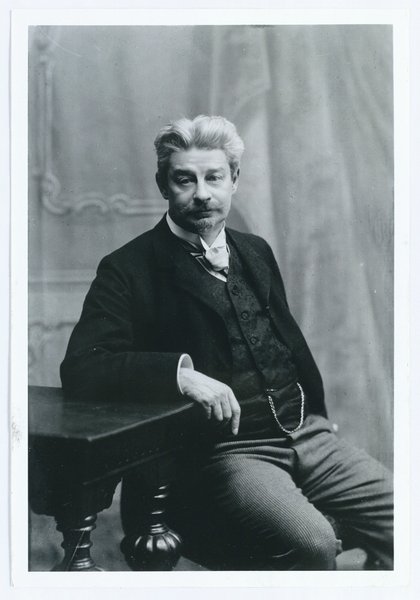Podcast: The Scandinavian Modern Breakthrough
Listen to a podcast on the social, political and literary movement from around 1870 to 1900 in Scandinavia called the Modern Breakthrough.

The social, political and literary movement from around 1870 to 1900 in Scandinavia was called the Modern Breakthrough. It was a backlash against conservatism, both culturally and politically, and led to countless challenging and fascinating pieces of fictional and non-fictional literature and art. Authors were like celebrities, propounding social justice for the poor, emancipation and rights for women, taking up naturalist ideas post-Darwin, and kicking against the overriding religion. But was it really that revolutionary? And did it make a difference to Scandinavian society in the end?
Listen to this podcast with two guests ideally placed to talk about the subject: Janet Garton, Emeritus Professor in Scandinavian Studies and translator and editor of mainly 19th and 20th century Norwegian and Danish literature; and, Paul Larkin, a writer of fiction and essays, he is also a translator whose recent works include the 1917 Nobel prize-winner Henrik Pontopiddan's A Fortunate Man (Lykke Per). Janet and Paul know one another through their work, e.g. Janet was the editor for Paul's translation of Terminal Innocence (Den Kroniske Uskyld). They are discussing the Modern Breakthrough with editor of nordics.info Nicola Witcombe.
Spoiler alert!: If you listen to this podcast, several endings of famous Scandinavian novels will be disclosed!
Podcast
The authors and works that are mentioned in this podcast | |
|---|---|
| |
| |
| |
| Other |
|
Further reading:
- Elias Bredsdorff: Den store nordiske krig om seksualmoralen [The great Nordic war about sexual morality] (Copenhagen: Gyldendal, 1973).
- Georg Brandes, Det moderne Gjennembruds Mænd [The Men of the Modern Breakthrough] (Copenhagen: Gyldendalske boghandels forlag (F. Hegel & søn), 1883).
- Georg Brandes, Russisk og tysk litteratur (Udvalgte Skrifter, 1986).
- Flemming Behrendt, Livsrusen – En bog om Henrik Pontoppidan [Seized by life – Henrik Pontoppidan] (Copenhagen: Gads Forlag, 2019).
- Janet Garton, Amalie. Et forfatterliv [Amalie: The life of an author] (Oslo: Gyldendal Norsk Forlag, 2011).
- Niels Kofoed, Henrik Pontoppidan (1986).
- Paul Larkin, Henrik Pontoppidan, Kierkegaard and ‘Danish Gothic’ (Henrik Pontoppidan as Educator) (academia.edu, 2021).
- Peter Christen Asbjornsen and Jorgen Mo, The Complete and Original Norwegian Folktales of Asbjornsen and Moe (University of Minnesota Press, 2019).
Links:
- Article 'Georg Brandes om hovedstrømninger i 1800-tallets litteratur, 1871' (In Danish) on danmarkshistorien.dk.
- Danish language and literature society (Det Danske Sprog- og Litteraturselskab, DSL)
- Discussion in Norwegian from UiO:Nordic at the University of Oslo and the National Library of Norway: Konstruksjonen av Norden: Det moderne gjennombrudd. Jens Bjerring-Hansen, Narve Fulsås, Ulrike Spring og Mona Ringvej
- Norvik Press
- Norvik Press blog
- Pontopiddan Society (Pontopiddan Selskabet)
- Trailer to series Lykke Per: